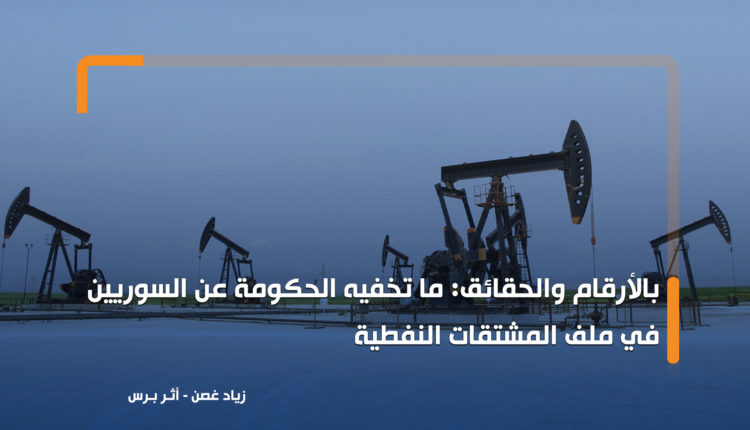The pro-government economist and reporter Ziad Ghosn wrote on a pro-government website, delving into the intricate world of oil derivatives and the government’s financial strategies. Ghosn highlighted, on Athr.com, the government’s historical pattern of handling subsidies, drawing a parallel between past and present practices.
He recounted how back in 2007, during Engineer Naji Otri’s tenure, the government initiated the “redistribution of subsidies” project, aiming to allocate subsidies to deserving recipients. Notably, Ghosn pointed out that the government’s calculations showed the cost of subsidizing locally-produced oil derivatives based on international oil prices to be exceptionally low due to Syria’s low production costs.
Recently, pro-government journalists and activists have begun to turn against their government.
The Syrian population’s discontent has grown, culminating in strikes, arrests, and vocal opposition. The regime’s shift in policy, moving away from subsidies, has intensified citizens’ calls for change. Concerns arise about a potential cycle of subsidies and subsequent price hikes, exacerbating economic turmoil. As a response to the deteriorating living conditions, protests, general strikes, and civil disobedience movements have emerged in regions controlled by the Assad regime.
Reverse Effect: Salary Increase Prompts Closure of Popular Shops and Eateries
Ghosn exemplified this with data from 2006, when the estimated profit per barrel of Syrian-produced oil stood at $55.2, while the global market price for Dubai crude oil was $60 per barrel, indicating a cost of production of less than $5 per barrel.
He used this historical perspective to draw parallels with the current situation, where the government was grappling with the idea of liberalizing oil derivative prices as a means to tackle the worsening budget deficit. The current circumstances, however, were markedly different due to the ongoing occupation of key oil fields by US forces on the island. In response, the government had turned to Iran for oil imports, utilizing annual credit lines.
Tensions have particularly intensified in coastal areas, leading to concerns of possible civil conflict. Activists and vocal critics, like Ayman Fares and journalist Kinan Waqaf, have publicly challenged the regime’s leadership and policies. Fares directly challenged Bashar al-Assad and accused him and his wife, Asma al-Assad, of contributing to the suffering of the coastal population. Kinan Waqaf called for general civil disobedience and urged citizens, including military personnel, to stand against the regime’s policies. In a live Facebook broadcast, Fares confronted Bashar al-Assad with a resolute message: “If you consider yourself a leader, then prove it. Instead of sending your lackeys, come to me yourself.” He continued, “If you and your followers can capture me, a simple writer of truth, why don’t you instead confront Israel, a more formidable challenge?”
Ghosn shed light on the government’s method of calculating oil derivative costs, which involved factoring in the cost of Iranian oil and its refining and transportation expenses. However, in practice, the government only covered a fraction of the imported oil’s value or transportation costs, leading to a substantial portion of the oil bill being recorded as debt.
He argued that while the government’s claim of the treasury bearing significant costs due to subsidizing oil derivatives held theoretical validity, the practical implementation was more complex. Citizens were effectively paying for oil derivatives twice: first through direct consumption, and subsequently when the country had to repay the credit lines accumulated during the crisis years.
Ghosn addressed potential justifications for this approach, acknowledging the government’s need for revenue to finance its activities and support the budget. However, he contended that this didn’t justify selling oil derivatives at cost or even higher, especially when the country required support for its productive sector, cost reduction, and alleviation of economic sanctions and war-related pressures.
He urged the government to focus on stopping waste and corruption in the oil derivatives sector and to consider the use of credit lines as a means to genuinely support the productive sector.
Ghosn also scrutinized the government’s motive behind the recent increase in oil derivative prices, which seemed to generate revenue that far surpassed the value of salary increases. He questioned whether the move was genuinely aimed at improving citizens’ living standards or if it served to bridge the budget deficit caused by the government’s disruptive policies.
He delved into the figures, illustrating how the government’s revenue gains from the price hikes greatly exceeded the salary adjustments. Ghosn provided breakdowns for diesel and gasoline revenues, showcasing that the accumulated revenue was substantially higher than the allocated funds for salary increases.
Concluding with a call for transparency and further government-provided information, Ghosn invited the government to share its numbers and studies regarding the anticipated impact of the oil derivative price hikes.


